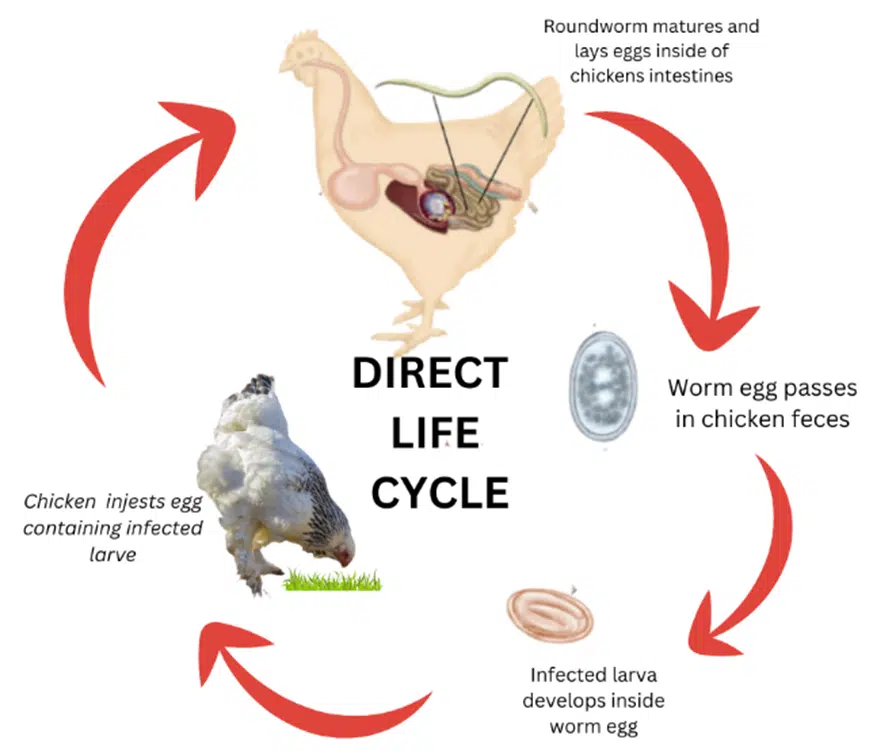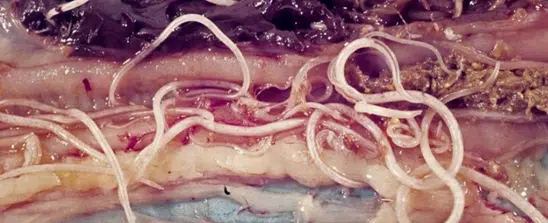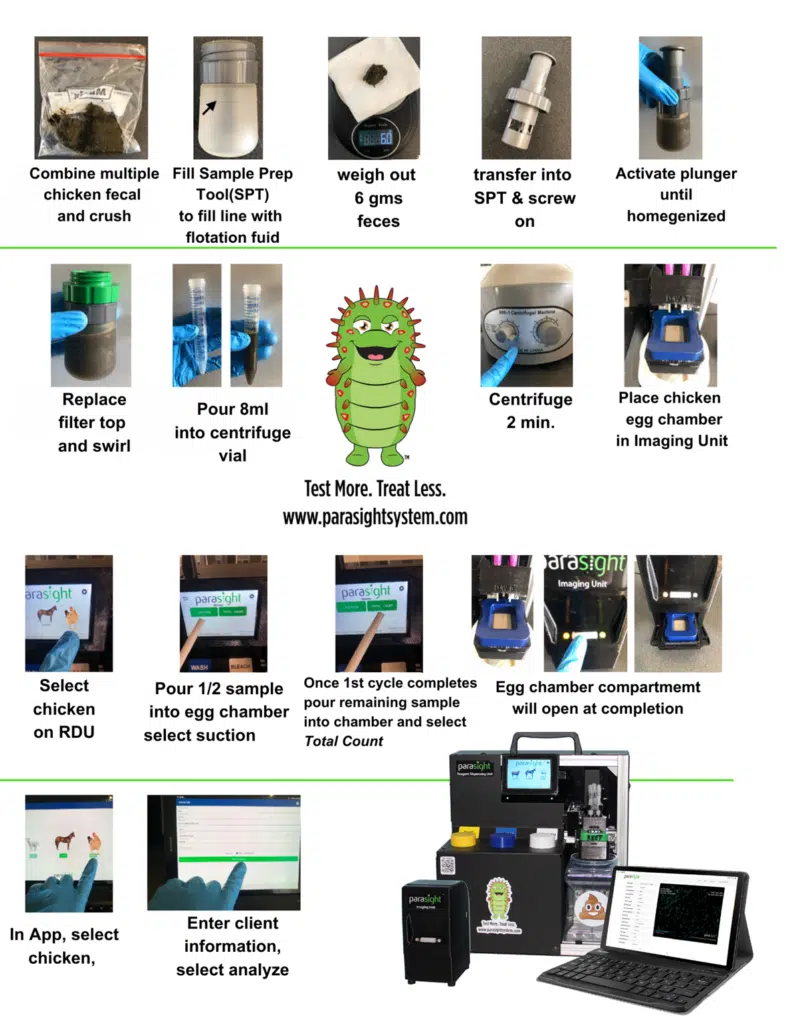There is a dramatic shift in the landscape of chicken farming and egg production; from containment sheds and battery caged to cage free and pasture raised. As retail requirements and regulations continue to address consumer desires supporting cage free farming, it is forecasted that a large majority of the egg producing chickens in the United States will become cage free within the next 5-10 years. As farms are transitioning, clinicians are seeing previous inconsequential parasitic presence in flocks shift towards a significant impact on the health of the flocks, egg quality and production.
Ascaridia galli (large parasitic roundworms) are the most common intestinal parasite found in backyard and “free range” chicken flocks worldwide. The A. galli eggs are very resistant and can survive outside in the soil for extended periods of time and can remain infective for years.
The parasite lives freely inside the chicken’s small intestine, where it reproduces and lays eggs, which are then passed out of the chicken in their feces. Adult worms migrate into other parts of the chicken’s body, such as the oviduct and body cavity. When in the oviduct, they can get trapped inside a newly formed egg, which can then be passed on to the consumer.
Clinical signs of roundworms in chickens will vary depending on the severity of the infection. The symptoms will be more severe in younger chickens, less than 3 months of age.
Clinical signs:

The lifecycle of A. galli is depicted above.
Below: Diseased poultry with A. galli worm infection.


© 2024 All rights reserved